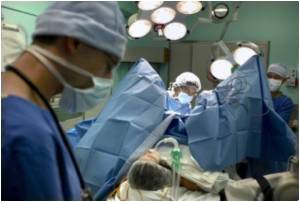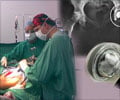It's a safe procedure that's markedly improved our ability to perform outpatient surgical services and in fact, it's become very rare for us to have any overnight stays for knee reconstruction, said Kevin E. Klingele.

"Ultrasound-guided regional anesthesia is being used more regularly in pediatric patients, and more often in younger and younger patients," said Dr. Bhalla, also director of the Pediatric Regional Anesthesia fellowship at Nationwide Children's and a faculty member at The Ohio State University College of Medicine. "One of the most significant side effects of opioid use in infants is depressed respiratory function, which leads many infants to require intubation. Reducing the need for narcotics helps the infants come off ventilation more quickly."
Nationwide Children's is one of 13 medical centers nationwide participating in the Pediatric Regional Anesthesia Network, or PRAN, a collaboration designed to support the collection of highly audited data on practice patterns and complications and to facilitate collaborative research in regional anesthetic techniques in infants and children. Participating institutions report the number of regional anesthesia procedures they do each month.
"Since 2010, we have significantly increased the number of blocks we are doing and now perform 150 and 200 a month," said Dr. Bhalla, who travels around the country and the world teaching other medical centers how to do these procedures in pediatric patients. "Of course, it's reduced cost to patients and families, reduced cost to insurance companies. So, it really is a whole benefit for the community and improves the experience for our patients."
Source-Eurekalert












